第45章 29(2)
During the last ten years of the eighth century, however, Charles was obliged to devote himself exclusively to affairs of the South. The Pope, Leo III, had been attacked by a band of Roman rowdies and had been left for dead in the street.
Some kind people had bandaged his wounds and had helped him to escape to the camp of Charles, where he asked for help. An army of Franks soon restored quiet and carried Leo back to the Lateran Palace which ever since the days of Constantine, had been the home of the Pope. That was in December of the year 799. On Christmas day of the next year, Charlemagne, who was staying in Rome, attended the service in the ancient church of St. Peter. When he arose from prayer, the Pope placed a crown upon his head, called him Emperor of the Romans and hailed him once more with the title of "Augustus" which had not been heard for hundreds of years.
Once more Northern Europe was part of a Roman Empire, but the dignity was held by a German chieftain who could read just a little and never learned to write. But he could fight and for a short while there was order and even the rival emperor in Constantinople sent a letter of approval to his "dear Brother."
Unfortunately this splendid old man died in the year 814.
His sons and his grandsons at once began to fight for the largest share of the imperial inheritance. Twice the Carolingian lands were divided, by the treaties of Verdun in the year 843 and by the treaty of Mersen-on-the-Meuse in the year 870. The latter treaty divided the entire Frankish Kingdom into two parts. Charles the Bold received the western half. It contained the old Roman province called Gaul where the language of the people had become thoroughly romanized.
The Franks soon learned to speak this language and this accounts for the strange fact that a purely Germanic land like France should speak a Latin tongue.
The other grandson got the eastern part, the land which the Romans had called Germania. Those inhospitable regions had never been part of the old Empire. Augustus had tried to conquer this "far east," but his legions had been annihilated in the Teutoburg Wood in the year 9 and the people had never been influenced by the higher Roman civilisation. They spoke the popular Germanic tongue. The Teuton word for "people" was "thiot." The Christian missionaries therefore called the German language the "lingua theotisca" or the "lingua teutisca," the "popular dialect" and this word "teutisca" was changed into "Deutsch" which accounts for the name "Deutschland."
As for the famous Imperial Crown, it very soon slipped off the heads of the Carolingian successors and rolled back onto the Italian plain, where it became a sort of plaything of a number of little potentates who stole the crown from each other amidst much bloodshed and wore it (with or without the permission of the Pope) until it was the turn of some more ambitious neighbour. The Pope, once more sorely beset by his enemies, sent north for help. He did not appeal to the ruler of the west-Frankish kingdom, this time. His messengers crossed the Alps and addressed themselves to Otto, a Saxon Prince who was recognised as the greatest chieftain of the different Germanic tribes.
Otto, who shared his people's affection for the blue skies and the gay and beautiful people of the Italian peninsula, hastened to the rescue. In return for his services, the Pope, Leo VIII, made Otto "Emperor," and the eastern half of Charles' old kingdom was henceforth known as the "Holy Roman Empire of the German Nation."
This strange political creation managed to live to the ripe old age of eight hundred and thirty-nine years. In the year 1801, (during the presidency of Thomas Jefferson,) it was most unceremoniously relegated to the historical scrapheap.
The brutal fellow who destroyed the old Germanic Empire was the son of a Corsican notary-public who had made a brilliant career in the service of the French Republic. He was ruler of Europe by the grace of his famous Guard Regiments, but he desired to be something more. He sent to Rome for the Pope and the Pope came and stood by while General Napoleon placed the imperial crown upon his own head and proclaimed himself heir to the tradition of Charlemagne. For history is like life. The more things change, the more they remain the same.